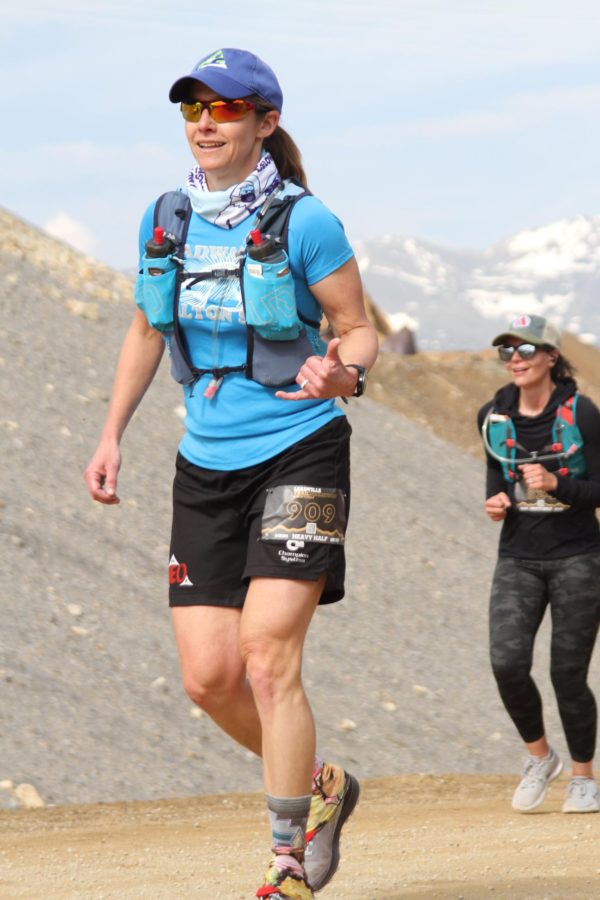Running is probably the easiest sport to train for due to the minimal amount of equipment involved. But is also has a tendency to cause the most injury due to the repeated impacts. Today I have some tips that will help you keep your running injury and pain-free.
1) Buy the right pair of shoes for you. In running, due to the repeated impacts and diversity of our own construction, it’s important to get the right pair of shoes. The staff at your local running store should be the runnning (or walking) shoe experts. They should do a gait analysis – most have a treadmill and a video camera, and will check your gait. They will then bring out several different brands with the shoes with the support you might need. Then you get back on the treadmill or go out for a run and they will make sure that it is an appropriate shoe. But it should be comfortable to you. Don’t be afraid to try different stores, as they will carry different brands. The brand that fits your friend or the local pro might not fit you at all. Be picky with your shoe!
2) Learn when to replace your shoes. We all get different amounts of mileage out of our shoes, based on the shoe, our weight, and our running style. A ballpark figure is 300-500 miles per pair, but that is a pretty wide range. I try to replace my running shoes every 3-4 months even when I haven’t reached the 300 mile mark, as I know that’s my limit. If you’re still running in a pair of shoes you got two years ago, it’s time to replace them!
3) Warm-up every time you run. There are many different kinds of warm-ups you can do, from simply starting with a walk and progressing to a jog, then hitting your desired pace. There are also neuromuscular warm-ups and “dynamic” warm-ups that get your running muscles firing. No matter what type of warm-up you do, make sure you do it each time you run. And the more intense your running is going to be, the more you need to make sure your warm-up is sufficient. I usually warm up for at least 15 minutes prior to a run workout. And if I run first thing in the morning, I will make my warm-up a little longer.
4) Don’t do too much too soon. This one can be hard to figure out, as everybody (and every body) is different, but a general rule of thumb is not to increase training load (volume(mileage) + intensity(speed)) by more than 10% each week. A training log can help you determine this. Also, take into account your current fitness level and how much running you’ve done in the past. If you are new to running, take the time to allow your body adapt to the new exercise. Three to four weeks of slower running at first is a good investment if it means preventing six to eight weeks of injury recovery.
5) Cool down and stretch after each run. Just like we didn’t want to shock our body into running fast before warming up, we want to do the same after we’ve been running. Your muscles will be a lot happier if you slow to a jog then walk after a run. Some like to do similar “dynamic” cool downs as they did for their warm-up to reinforce running motions. Stretching helps lengthen the muscles that we just tightened up during our exercise.
6) Do not run through pain. Learn to recognize the “pain” or discomfort from pushing yourself versus injury pain. Our body is pretty good at sending us the correct signals, we just aren’t good at listening to them. If it hurts, there is a reason. The sooner you seek professional help for pain, the quicker you will be back pain-free. Often a few simple corrective exercises can fix issues such as muscular imbalances that cause pain while running. Find a physical therapist that specializes in sports performance that can do a thorough analysis of your gait and offer corrective exercises so you’re back on the roads and trails in no time!
Happy Running!
Coach Nicole is the founder and head coach for NEO Endurance Sports & Fitness, a Colorado-based endurance sport coaching company. She is a USAT Level 1 Certified Coach and also coaches triathlon for Team In Training. Please visit https://neoendurancesports.com to learn more about how Coach Nicole can help you with your running skills.






